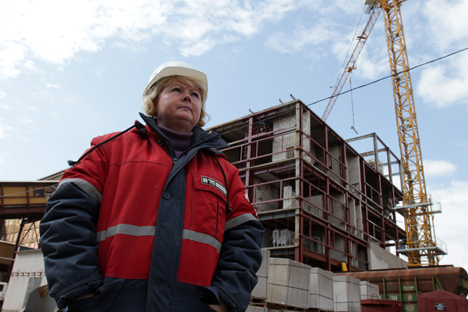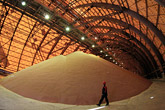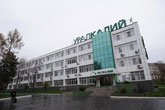Global potash prices to rise slowly in 2014

Prizes for potash fell last year after Uralkali left its partnership with Belarus that formed a major part of an informal cartel. Source: PhotoXPress
High demand for potash around the world at the beginning of the year played into the hands of manufacturers, allowing them to begin raising prices. Next week Uralkali may sign a contract with China, the price of which will be at least $20 per tonne higher than Beijing wanted. Starting in March, the price of potash may also be raised for Brazil. Analysts believe that prices will grow all over the market, but this will be a slow process, and 2014 will be a hard year for manufacturers.
As Kommersant has learned, Uralkali may soon sign a contract for the supply of potash to its main market – China. Kommersant’s source on the market notes that the parties are determined to do this before the Chinese New Year (January 30), and possibly this will be done next week. The price will be $300–$320 per tonne, says Kommersant’s source. During the talks, the Russian side insisted on $330, and the Chinese side insisted on $280–$290 per tonne.
The volume of the contract should be “commensurate” with the level of 2013. That year China purchased 700,000 tonnes under the main contract, with a 300,000-tonne option in the first quarter, and in July, Beijing signed another contract for the supply of 500,000 tonnes of potash at $400 per tonne.
According to Kommersant’s source, the talks were complicated by Belaruskali, the former partner of Uralkali. The former cut production by 12 percent in 2013 and started seeking channels for sales of stocks accumulated in its warehouses (according to unofficial information, not less than 300,000 tonnes). “However, because of its reputation as an unreliable supplier, negotiations with Belarus will be held after all the others,” said one of the interlocutors of Kommersant.
Prizes for potash fell last year after Uralkali left its partnership with Belarus that formed a major part of an informal cartel. Potash is a raw material which is used for manufacturing murate of potash and complex fertilisers comprising various combinations of nitrogen, phosphorus and potash. India is the second largest importer in the world of potash after China and negotiations between the Beijing and the Russian side will be closely watched by Indian importers.
Potash manufacturers were able set their own terms with consumers, because of high demand at the beginning of the year. According to Kommersant’s sources, Uralkali has concluded contracts for the entire volume of its production in January and almost for the entire volume of production in February. The price may grow stating on March 1 for some regions. For example, according to the Kommersant’s sources, it will be $350–$360 per tonne in Brazil. The country has already contracted potash at $310–$320 per tonne for January and February.
According to Fertecon, the shipments of Uralkali to the region will amount to 120,000–150,000 tonnes of potash per month during this period.
Related:

Belarus Potash Company fully recovers after Uralkali’s withdrawal
Uralkali chief staying in Moscow’s pretrial detention centre
Many consumers did not buy potash in the second half of 2013, expecting prices to drop. “However, they were convinced that $300 was the bottom; the main market indicator, the contract with China, will be concluded at a higher price,” says one of Kommersant’s sources. According to him, the fundamental demand for potash and the livening up of the market have become catalysts for growth of prices for other types of fertilizers. Nitrogen and phosphorus fertilizer prices have grown by an average of $40–$50 per tonne recently.
Konstantin Yuminov in Raiffeisenbank explains the growth in demand in Brazil by the fact that the country has been actively purchasing fertilizer for the growing of soybeans, whose harvest is expected to be large this year. The growth in prices in this major market will be a catalyst for similar processes in other regions, Yuminov says. At the same time, he notes that the growth in prices will be smooth. Sergey Filchenkov in Metropolis believes that the overall situation in 2014 will remain difficult for potash manufacturers, given high inventories in China and the still low overall price level.
This is an abridged version of an article originally published by Kommersant.
All rights reserved by Rossiyskaya Gazeta.
Subscribe
to our newsletter!
Get the week's best stories straight to your inbox
